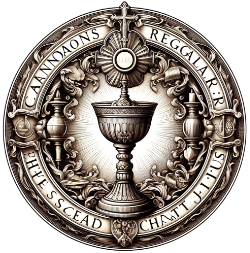Homily for the Feast of St James the Greater
St. James The Greater
In the name of the Father, and of the Son, and of the Holy Spirit. Amen.
Brothers and sisters, today we stand in the company of one who thundered across Galilee with a heart aflame and finished his journey as the first among the Apostles to lay down his life in martyrdom: St James the Greater, son of Zebedee, brother of John, and beloved companion of Christ.
We meet James not in solitude, but in movement, called from the sea with nets half-mended, walking beside Jesus with questions bold and faith emerging. The Gospels do not paint him as soft-spoken. Quite the opposite. Jesus names him and his brother “Boanerges”—sons of thunder—a nickname with spiritual voltage. It speaks to their fervour, their courage, and yes, perhaps even their impulsiveness.
And yet, as we trace James’s path, we see a man reshaped not by suppression of his fire, but by its purification.
James is one of only three invited into the intimacy of the Transfiguration. He hears the voice from the cloud: “This is my Son, the Beloved.” He sees the dazzling glory of Jesus. And still, he is present in Gethsemane, watching the same Son groan in sorrow. Glory and agony—James sees both, and this twin vision forms him.
In this dual witness, we begin to understand why James is so beloved. He does not flee from the paradox of discipleship. He enters it. He is ambitious, yes—“Grant us to sit at your right and your left,” he and John ask. But the Lord does not rebuke their desire for greatness; He redirects it. “Can you drink the cup I drink?” And James answers without pause: “We can.”
And he does.
It’s worth noting that in Acts 12, when James is martyred by Herod’s sword, the account is terse—almost matter-of-fact: “He killed James the brother of John with the sword.” No lengthy eulogy, no vivid description. But this silence is eloquent. James, who once thundered, has become tender enough to follow Christ to the end with no fanfare. His greatness is now hidden in love.
Santiago de Compostela, Spain
Tradition tells us that his relics were taken to Compostela, and pilgrims have walked hundreds of miles in homage to his memory. But it is not the walking that transforms—it is the remembering. The remembrance of a life unafraid to change. To be moved. To go from asking for thrones to accepting a cross.
Let us turn, briefly, to the Epistle of James. Not penned by this James, but by another—James the Just, brother of the Lord. Yet the resonance is striking. “Be doers of the word,” he writes, “and not hearers only.” This is precisely what the thunderous James became. Not merely a listener. Not merely an apostle by association. But one who did the word. He drank the cup. He went to the sword. He laid his ambition at the feet of Christ and walked into a death more radiant than any earthly throne.
So, what do we take from his witness today?
First: Boldness is not a sin when it is surrendered. James teaches us that passion, when purified by proximity to Christ, becomes sanctified courage. It’s not wrong to desire greatness—it is wrong to seek it without love.
Second: Closeness to Christ is transformative. James was there at the Transfiguration and at Gethsemane—moments of glory and pain. His witness tells us that we must not seek one without the other. The mountaintop and the olive press both form the disciple.
Third: Death is not the end, but the ultimate proclamation. James’s final act is not preaching, writing, or strategising. It is dying with dignity. That sword, silent in Scripture, speaks volumes in eternity.
And finally, perhaps most movingly: He walked. His life has become a pilgrim’s path. Not by accident, but by design. Compostela is more than a shrine—it is a rhythm, a call, a procession. It reminds us that we too must move into deeper surrender, into fuller trust, into braver witness.
So today, we ask for his intercession. For our own thunders to be made tender. For our ambitions to be made holy. For our feet to follow the same Christ who once whispered to James, “Come after me.”
St James the Greater, Apostle, Martyr, Pilgrim—pray for us.
In the name of the Father, and of the Son, and of the Holy Spirit.
Amen.



